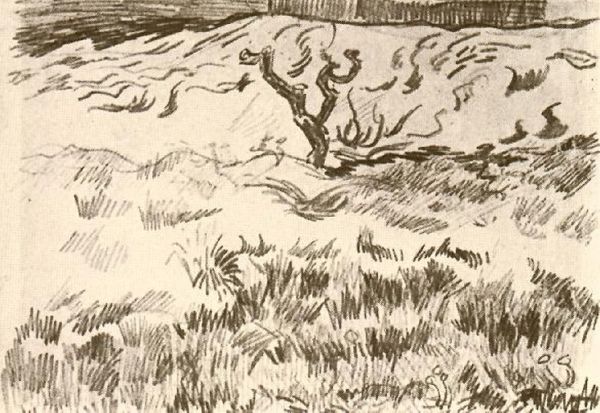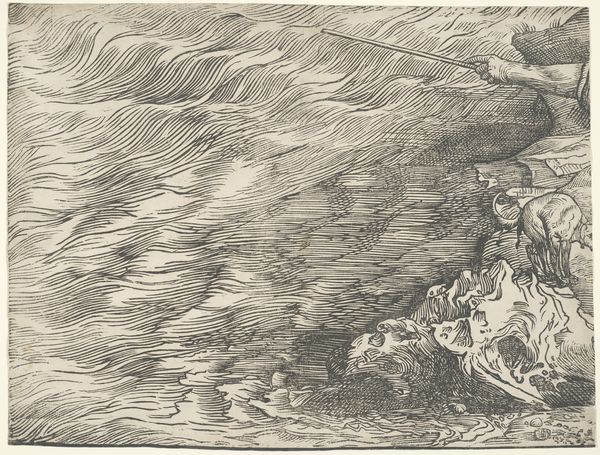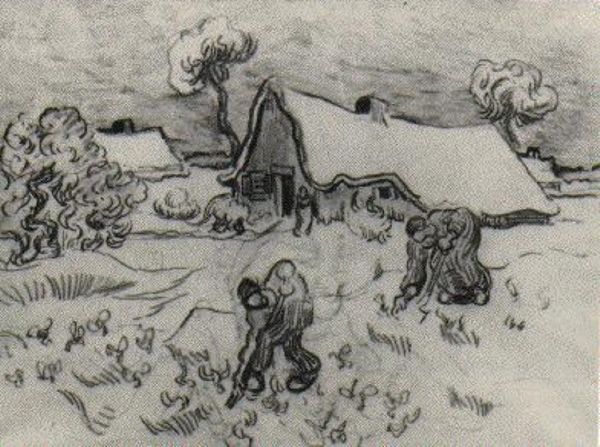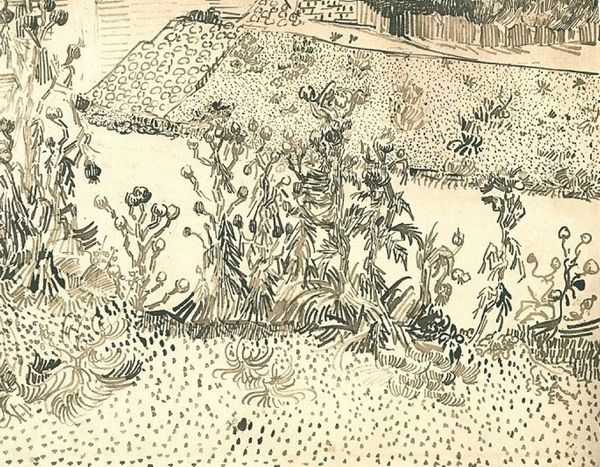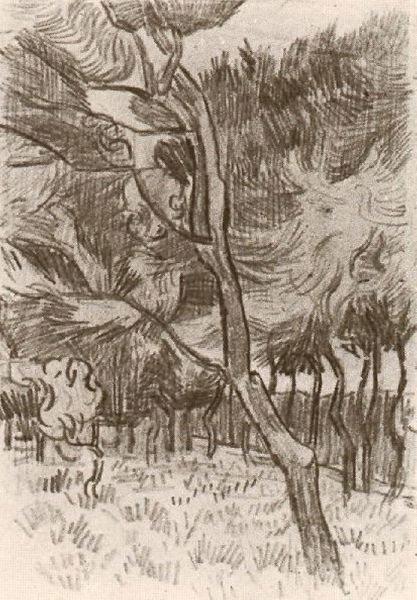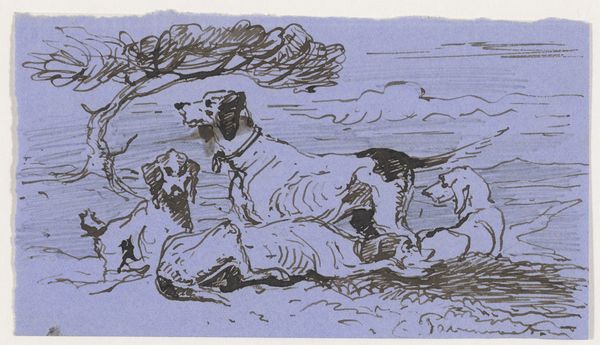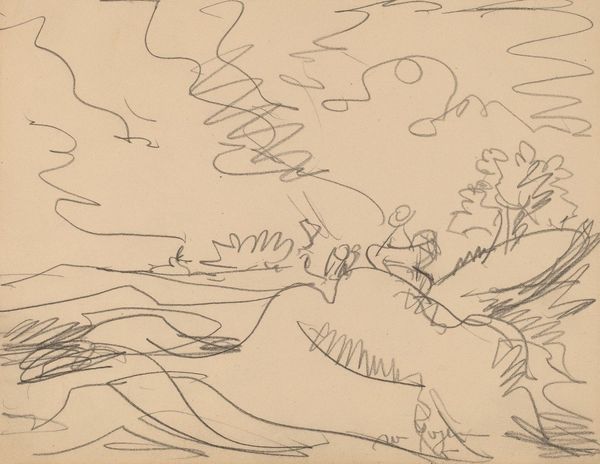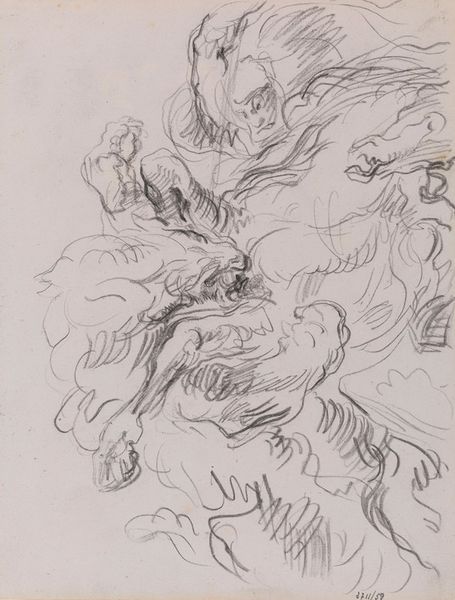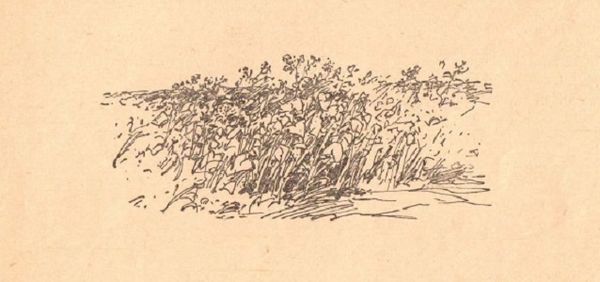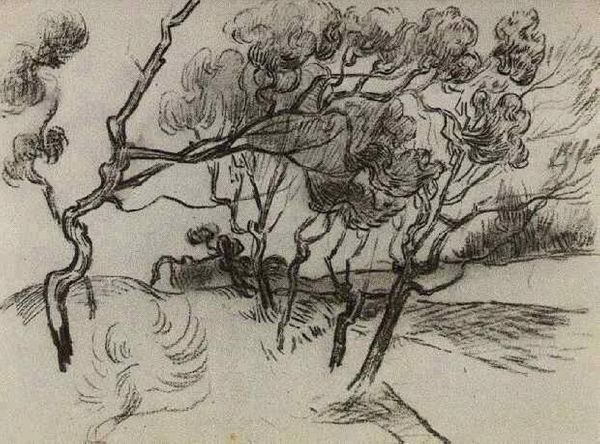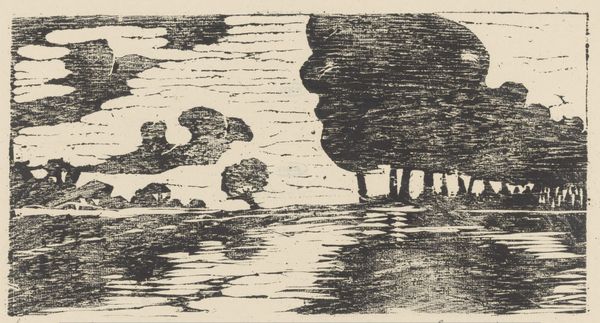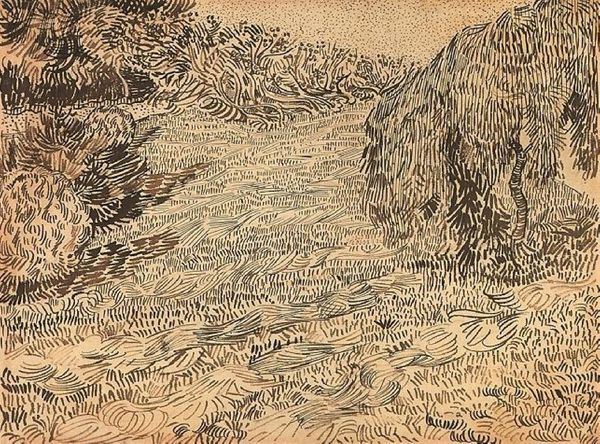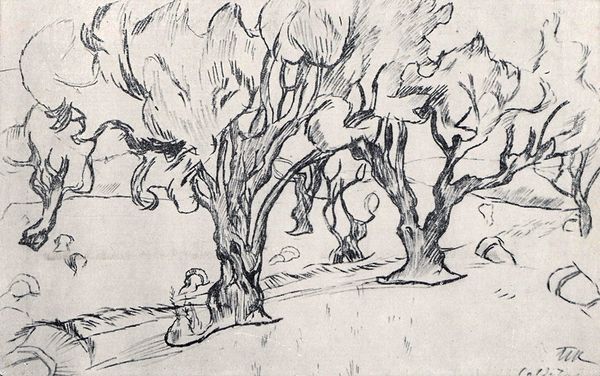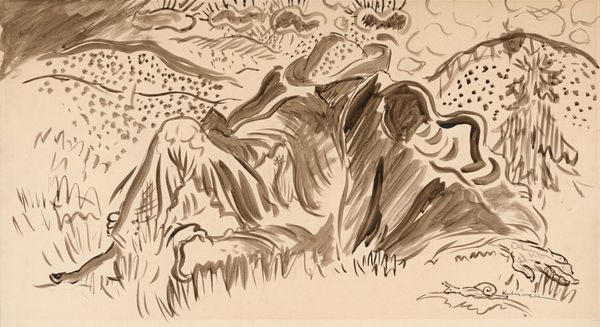
drawing, plein-air, ink, pencil
#
tree
#
drawing
#
pen drawing
#
impressionism
#
pen illustration
#
pen sketch
#
plein-air
#
landscape
#
ink line art
#
linework heavy
#
ink
#
forest
#
ink drawing experimentation
#
plant
#
sketch
#
pen-ink sketch
#
pencil
#
thin linework
#
pen work
#
sketchbook drawing
#
botany
#
organism
Copyright: Public domain
Editor: We're looking at Van Gogh's "A Group of Pine Trees near a House," created in 1889. It's a drawing done with ink, pencil, and possibly pen, showcasing a grove of pines near a simple dwelling. I’m immediately struck by the frantic energy of the linework, how the density almost feels suffocating in some areas. What can you tell us about this drawing? Curator: It’s interesting that you use the word ‘suffocating’ – Van Gogh was, of course, battling intense mental health struggles at this time, wasn’t he? Consider how the claustrophobic feeling you describe speaks to the societal pressures and the confining expectations placed on individuals, especially artists who dared to deviate from established norms. Editor: That's a fascinating point. I was mostly focused on the purely visual elements of the artwork: how the hatching creates such dense texture. The pine trees are practically vibrating! I hadn't connected it to social factors as a whole. Curator: The vibrant texture may echo the internal turmoil and the radical perspectives of many marginalized voices that are rising to challenge structural power imbalances in the late 19th century. How might the very act of portraying nature with such intense emotion challenge traditional academic notions of landscape art? What does it mean to pour such personal struggle into depicting something traditionally considered serene? Editor: I guess I hadn’t thought of landscape art as political… so in what way does this speak to contemporary struggles of artists and mental health visibility? Curator: It does not just open up conversations around mental health awareness. We see, perhaps, in the heavy linework, the anxieties and stresses related to a constant need for work under capitalism. Artists of Van Gogh’s time fought and, even now, artists fight for recognition and proper pay for creative production. Editor: I never thought about landscape art in those terms, particularly in connecting them to modern experiences and thoughts. This was definitely enlightening. Thank you! Curator: My pleasure! There’s power in recognizing that art isn't created in a vacuum and there are historical injustices still worth fighting for today.
Comments
No comments
Be the first to comment and join the conversation on the ultimate creative platform.
